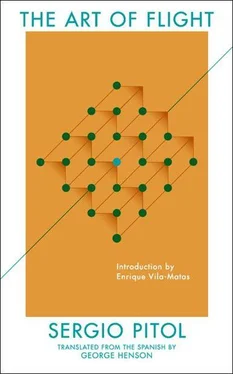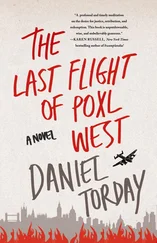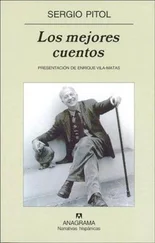Once again, I had been forbidden the opportunity to experience the masterpieces of Sienese painting. Two of the attractions that had made my trip to Siena appealing had vanished. I would not see Duccio de Buoninsegna’s The Kiss of Judas , nor would I meet in person Antonio Tabucchi. Talking to him, learning his points of view, hearing his interpretation of some of his texts had become so essential to me, as compulsive as it had been for the American editor, a matter of pride and dishonor, of life and death, to have in his hands the letters that the celebrated Jeffrey Aspern had written to Juliana Bordereau in the novel by Henry James.
But in the end I did see Tabucchi. I shudder as I relive the episode. Recalling my behavior still causes me stress. Since this book in a certain way is a collection of reparations and regrets, an attempt to allay anxieties and cauterize wounds, I’ll take the liberty of sketching in a few lines the circumstances of the encounter.
That afternoon I held my talk with the students and teachers. I spoke before a warm audience about my career as a writer, my ties to Italy, my recognizable influences, some philias and many phobias, viable and impossible projects. During the course of my talk, I saw Tabucchi enter through the door in the back. I recognized him immediately; I had seen pictures of him in his Anagrama editions and in the press; so I could not have been mistaken; he entered with wife María José, a very beautiful woman, with a splendidly intense expression. At the end of the talk, we introduced ourselves. Previously our relationship had been mediated by correspondence and numerous phone calls. The invisible presence of Jorge Herralde, our friend and mutual editor in Barcelona, served as a point of reference. The musical performance was about to begin. Speaking before the audience had left me extremely thirsty and rather fatigued. I asked if there was anywhere I could get a coffee; I needed at least two cups immediately. He said we could go somewhere, that there was a pleasant café near the university. I do not know if it was the excitement of the day, or the fear of not being able to hear him due to the deafness I mentioned earlier and responding foolishly to questions, but the fact is as soon as we sat down, after commenting briefly on the morning’s terrible news, I began to talk about his latest book, a short, smart, and delightful text about the imaginary dreams of characters to which he was devoted. It was the book of a curious, sharp, and refined intellectual, and, at the same time, one not locked away in an ivory tower — an author in solidarity with life. The twenty characters who were dreaming represented very diverse signs that the author, by bringing them together, was reconciling: Apuleyo, Rabelais, Goya, Leopardi, Stevenson, Rimbaud, Chekov, Pessoa, Mayakovsky, García Lorca, and Freund, among others. The book’s title was Dreams of Dreams ; it had been released very recently in a beautiful edition by Sellerio. I began almost immediately to talk nonstop, without allowing him to contribute; I began to list authors whose dreams would be worth imagining; Henry James, for example, must have some very complex ones, locked in a labyrinthine and elliptical syntax that trying to follow would have driven even the most competent psychoanalyst insane. It would have been an arduous task not only to decipher one of his dreams but also to understand his language, not become lost in the many folds of the single, never-ending and surely dark sentence in which he described them. And Borges’s dreams! Lezama Lima’s, Góngora’s, and I don’t know how many others! I spoke nonstop until we realized that time had flown by and we needed to return to the university so we could at least be present at the end of the musical performance. We returned. The concert ended, and the preparations began that would lead us to the house in the country where we were invited to have dinner. The Tabucchis invited me to ride with them in their car. Naturally, I sat in the front seat, which meant that my good ear faced the window and the deaf one toward Tabucchi and, partially, María José, who was sitting in the backseat.
They asked me the usual questions that well-mannered people ask: how my trip had been, where I was coming from, how did I feel in Italy, those necessary preliminary questions that tend to relax the interlocutor, create a climate of trust and, at the same time, the necessary conditions for what will become the body of the conversation. I answered that I had flown from Mexico to London, from there to Rome, and then traveled to Florence by train, where I met Antonio Melis with whom I drove to Siena.
I should have stopped there. Or perhaps I could have described my shock that morning upon learning about the destruction of a place where I had been a few hours before the catastrophe, a place that should be considered invulnerable for having endured five centuries of wars, invasions, floods, and sackings, from which it had always emerged intact. That would have been the correct thing to do, would it not? But the events did not transpire that way. After relating my itinerary, as I have already said, I began to talk about my experience in the taxi that drove me from my London hotel to the airport. I said that the driver struck up a conversation, perhaps out of politeness, to keep me entertained during the long ride, which made me rather uncomfortable in the first place because of the effort required to hear and make myself heard in those vehicles of such excessive dimensions, and because as a rule English cabbies speak with accents very difficult to understand, each one more exotic than Cockney, in which one loses words and entire sentences. The driver was a man of more or less my age, portly, and with a face similar to the one in those classical illustrations by which we’ve come to know Mr. Pickwick. He began to talk about his experiences as a tourist. He recalled with disconcerting precision, like an English incarnation of Borges’s Funes, the names of all the hotels in which he had stayed, the restaurants where he had eaten, the dishes he had ingested, as well as their condiments, the brands of cigarettes, soaps, and toilet paper, and the price in local currency of each of these products, which he immediately translated into pounds sterling. He had been to Mexico on one occasion and recalled everything I had never noticed. He did not show the slightest artistic or historical curiosity for the countries he had visited, nor excitement for the landscape; no human interest in the inhabitants of those places nor curiosity about their problems. Everywhere he went he amused himself by finding the English products that were on the market and finding out their price, comparing it to the price in London and in the process determining the profits made by the merchants. To be honest, I was fed up; I answered in monosyllabic words; I wanted to read the morning paper, but cutting him off in mid-sentence would be very awkward. So I reconciled myself passively to not encouraging the conversation. He told me that he walked as much as he could, both while traveling and in London. He thought that society had begun to break down because people had become unaccustomed to walking. I do not know if in response to one of his questions or motu proprio I told him that I took a walk twice a day; that I walked my dog an hour in the morning and another hour at night. He asked me the name and breed of my dog. His name is Sacho, and he’s a wonderful bearded collie. You should have heard the fuss! He told me the story of his dog, also a bearded collie, with which he had lived for fifteen years. When she died, several years earlier, he suffered an extreme depression. He stopped working; a time arrived when he did not leave the house, he thought the end was near. A few Sundays he mustered the strength to go to Mass, it turns out he was Catholic. On one occasion, shortly before the end of mass, he heard a voice that said to him: “She’s fine where she is and is taking care of you from there.” His depression disappeared; he was able to return to a normal life and to work. His emotion seemed authentic, even after so many years. I adored him. I could have traveled to the ends of the earth to hear the everyday details of his relationship with his dog. Just then we were arriving at the house in the country. “It has an air of Chekov,” was Tabucchi’s comment.
Читать дальше












